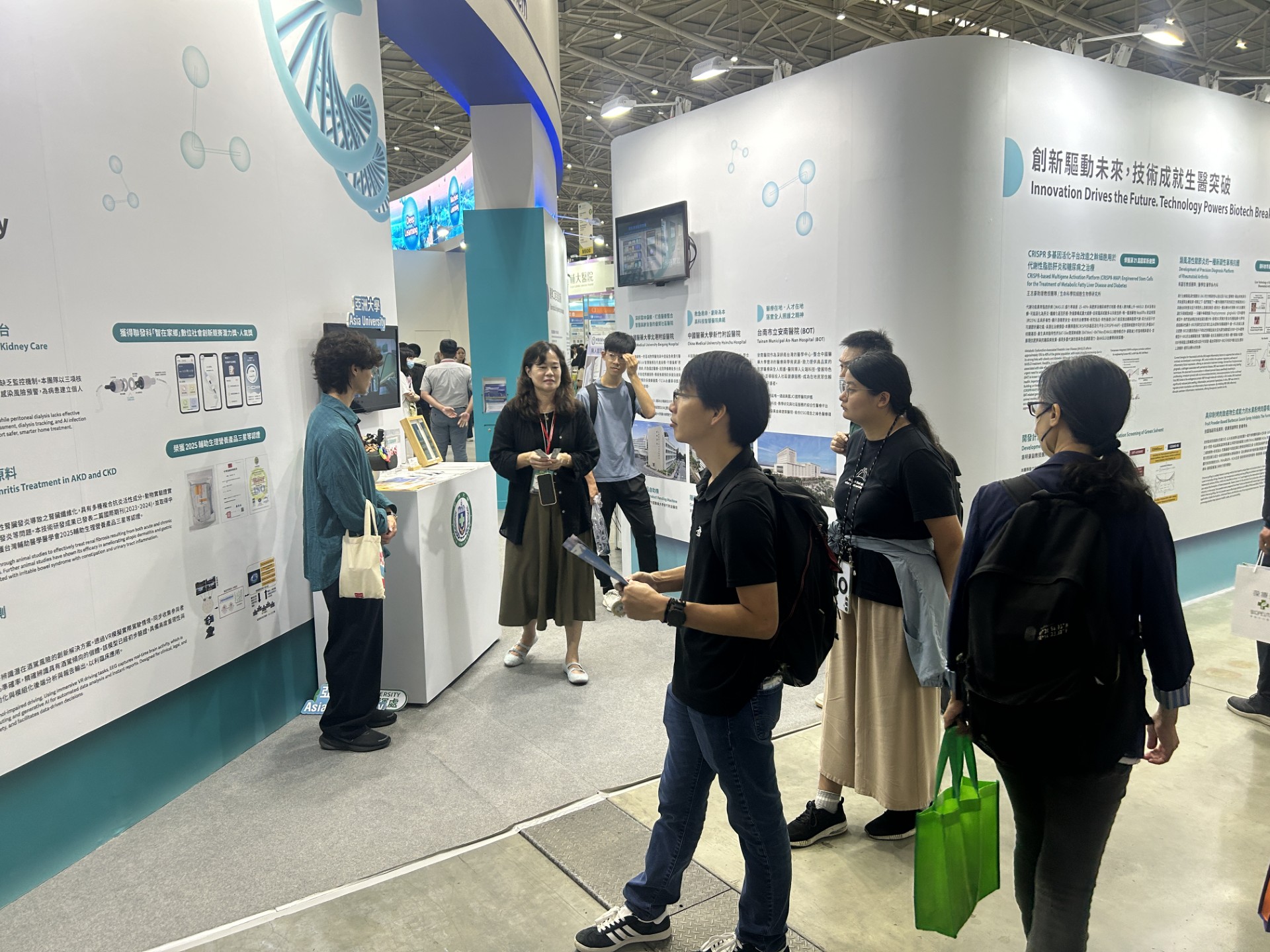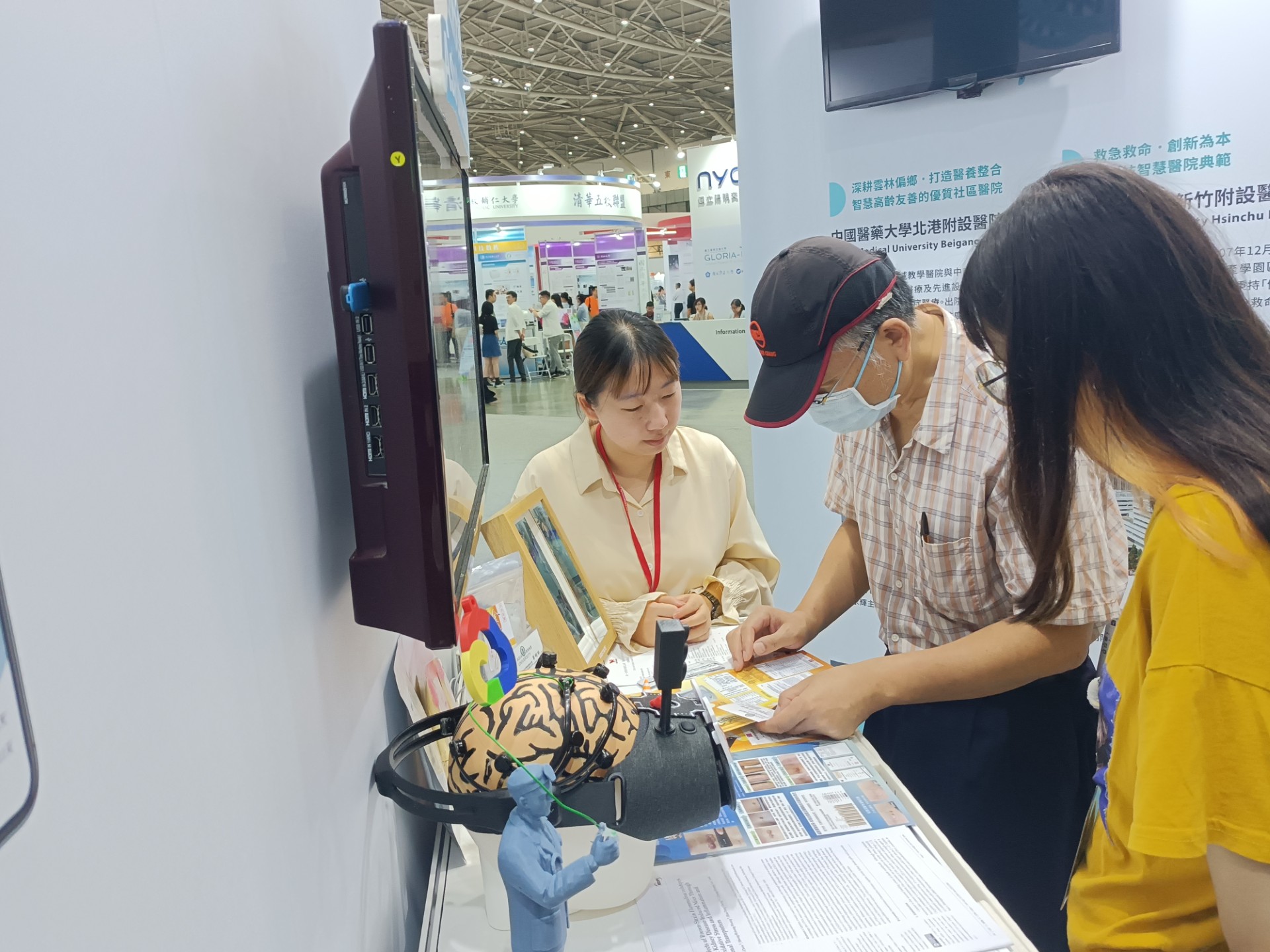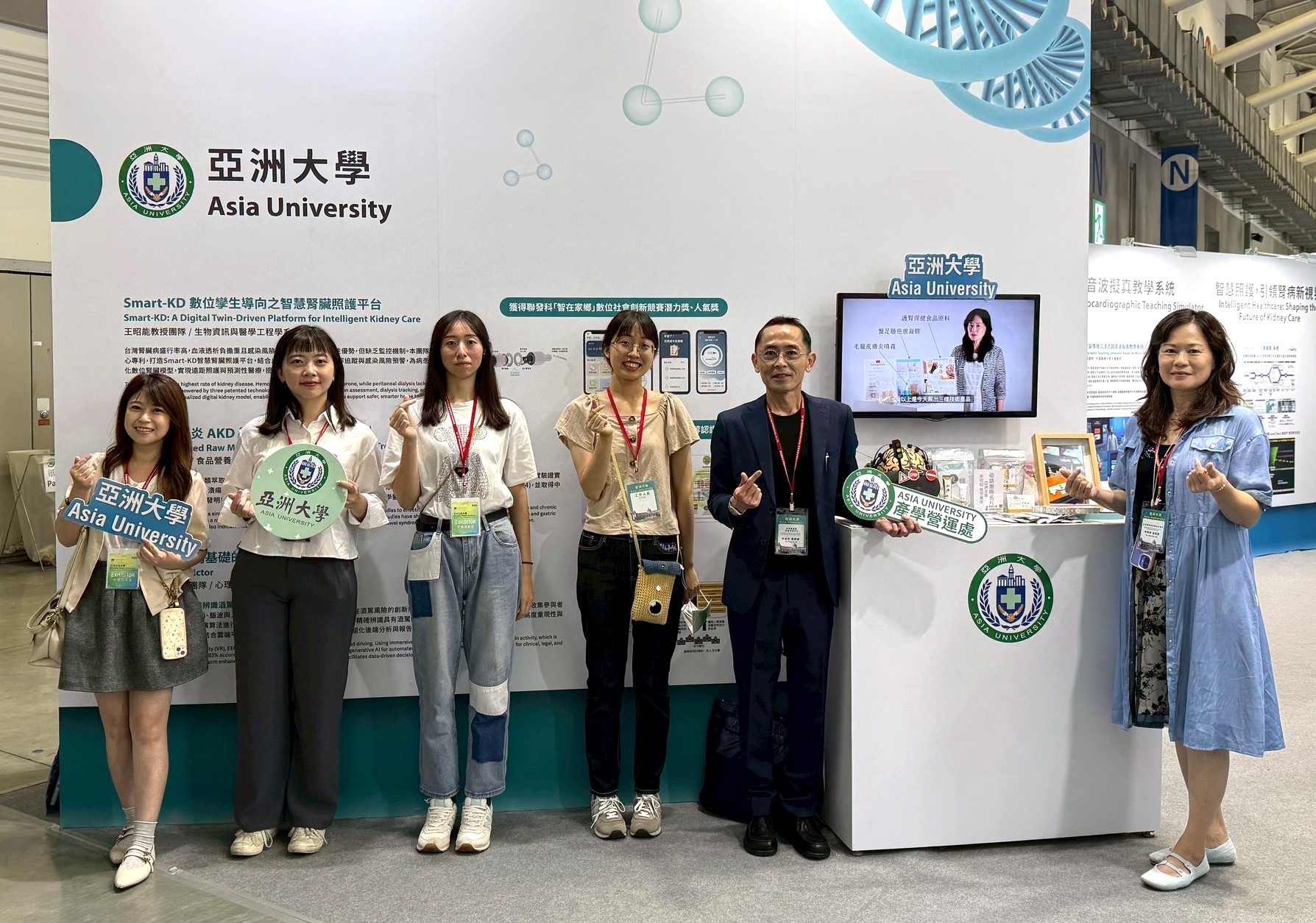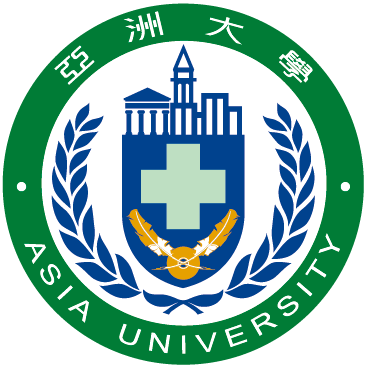Highlighting “AI Smart Healthcare” as the core theme to showcase achievements in biomedical digital transformation and research development.
 Asia University’s booth at the 2025 BIO Asia-Taiwan Exhibition drew strong interest from visitors.
Asia University’s booth at the 2025 BIO Asia-Taiwan Exhibition drew strong interest from visitors.
Asia University and China Medical University, as members of the “China Asia University Alliance (CUAA),” jointly participated in the 2025 BIO Asia-Taiwan Exhibition this summer. With “AI Smart Healthcare” as the central theme, the joint booth showcased research and development achievements in biomedical digital transformation across diverse fields, including biotechnology, pharmaceuticals, medical devices, precision medicine, AI applications, ICT integration, IoT, and smart healthcare. The exhibition attracted enthusiastic visits and exchanges from domestic and international experts, scholars, and industry professionals. Asia University founder Dr. Jeffrey Jang-Hai Tsai also attended the exhibition, guiding the team in planning the application of technologies and directions for future development.
The 2025 BIO Asia-Taiwan Exhibition reached a record scale, bringing together more than 900 leading companies from Taiwan and abroad, with over 2,200 booths. The event welcomed more than 600 international representatives from 50 countries, including the United States, Japan, Canada, Belgium, Singapore, and South Korea, highlighting the growing global influence of Asia’s biotechnology industry.
Key research highlights from the Asia University team included:1.Professor Chao-Neng Wang’s project on the “Smart-KD Digital Twin-Oriented Smart Kidney Care Platform.” 2.Professor Ming-Ming Lee’s research on mushroom-derived ingredients for adjunct therapy in AKD and CKD treatment. 3.Professor Pin-Yang Yeh’s study on “AI-Based Risk Detection of Repeat Drunk Driving Offenses.”
 At the “2025 BIO Asia-Taiwan Exhibition,” visitors inquired about innovative technologies at Asia University’s booth.
At the “2025 BIO Asia-Taiwan Exhibition,” visitors inquired about innovative technologies at Asia University’s booth.
Professor Chao-Neng Wang presented the “Smart-KD Intelligent Kidney Care Platform,” which integrates three key functions: vascular function assessment, peritoneal dialysis monitoring, and infection detection. By using physiological parameters to build personalized digital kidney models, the system can track dialysis efficiency and physiological changes in real time. With the support of AI-based image recognition technology, it also provides proactive infection risk alerts, enabling precise and safe intelligent dialysis care.
Professor Ming-Ming Lee highlighted two patented technologies showcased at the exhibition: “Flammulina velutipes Extract for Suppressing Cisplatin-Induced Acute Kidney Injury” (Taiwan Invention Patent I857258) and “Extraction Device for Obtaining Flammulina velutipes Components” (Utility Model Patent M647742). The extract demonstrates strong antioxidant activity, and animal experiments have confirmed its efficacy in alleviating both acute and chronic kidney inflammation. The technology has been certified with a three-star rating by the Taiwan Society for Complementary Medicine in 2025 for its role as a complementary physiological nutrition product. The research specifically targets individuals in the early stages of kidney disease, for whom no clear care strategies currently exist, and aims to provide effective complementary nutritional therapy for sub-healthy kidney groups (glomerular filtration rate above 60% up to Stage 3a).
Professor Pin-Yang Yeh from the Department of Psychology introduced an innovative risk detection system that integrates virtual reality (VR), brainwave measurement technologies, and AI algorithms to identify potential risks of repeat drunk driving offenses in real time. Initial collaborations with healthcare institutions are already underway, with future plans to expand applications to Taiwan’s judicial system to help address the pressing issue of drunk driving prevention.
Professor Wang added that Asia University faculty members are dedicated to developing technologies that improve public health and assist in clinical therapies through complementary medical products. The research outcomes showcased at this year’s BIO Asia-Taiwan Exhibition have attracted collaboration inquiries from multiple companies and invitations from overseas exhibitors, underscoring the university’s strong research capabilities and clinical application potential in smart healthcare and complementary medicine.
 Lin Ying-Li (2nd right), Director of the Innovation and Incubation Center at Asia University, and Professor Ming-Ming Lee (1st right), Chair of the Department of Health and Nutrition, posed with their research team at the 2025 BIO Asia-Taiwan Exhibition.
Lin Ying-Li (2nd right), Director of the Innovation and Incubation Center at Asia University, and Professor Ming-Ming Lee (1st right), Chair of the Department of Health and Nutrition, posed with their research team at the 2025 BIO Asia-Taiwan Exhibition.





